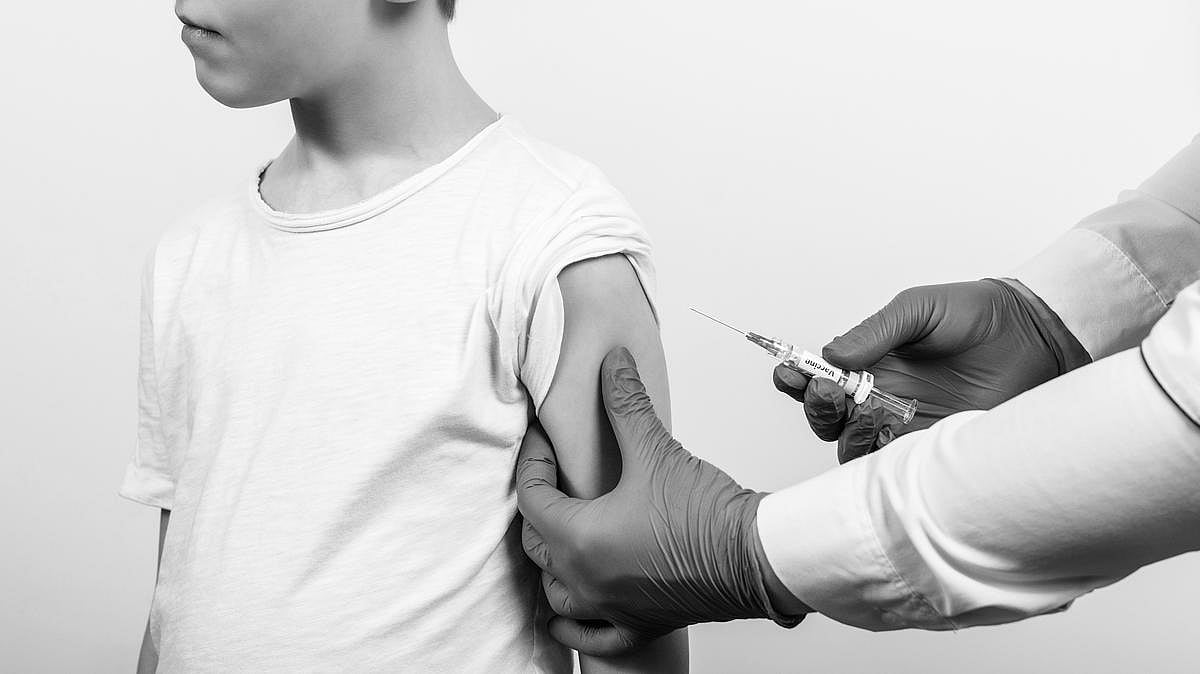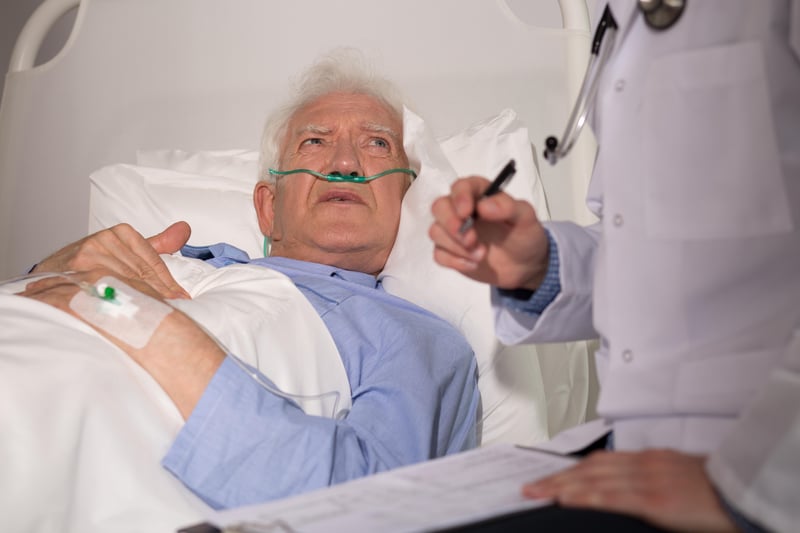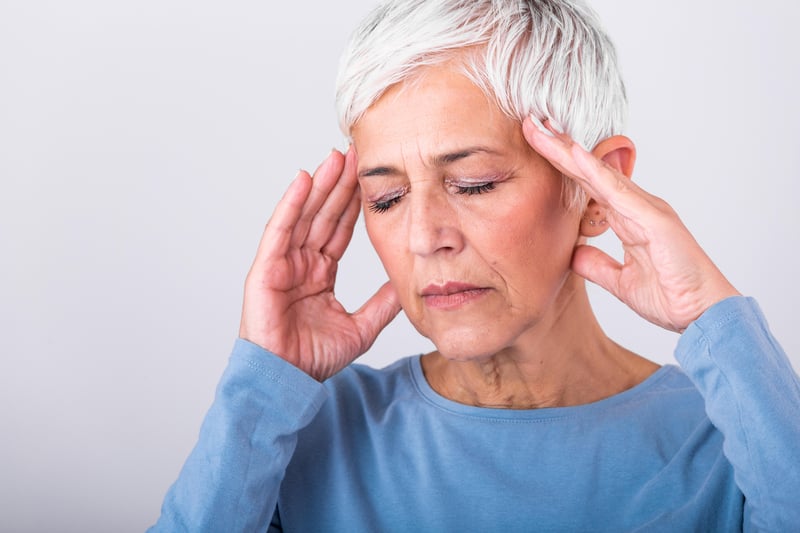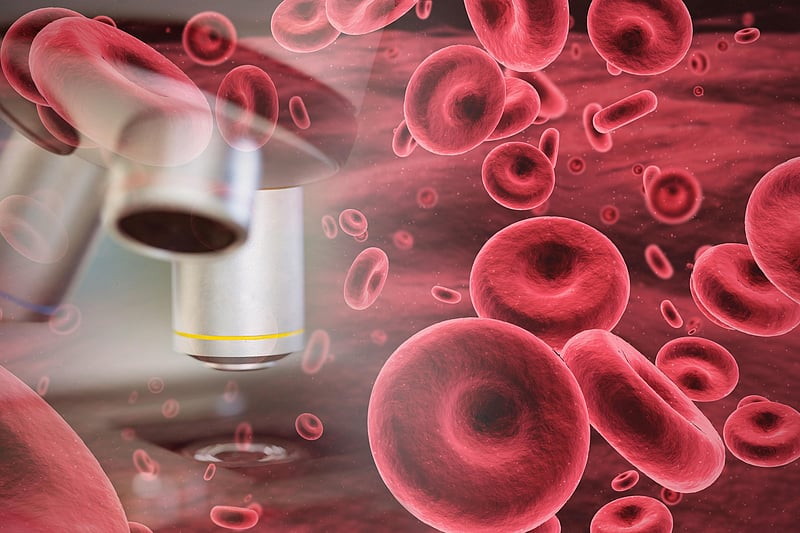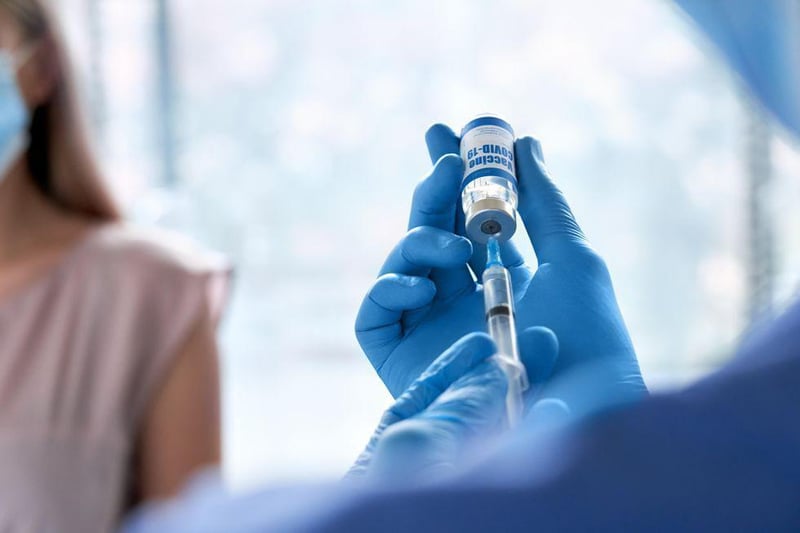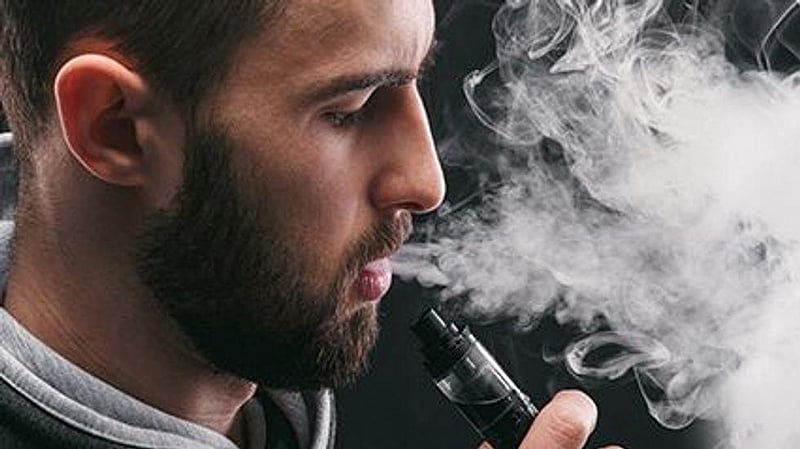Patient Resources
Get Healthy!
Results for search "Clots".
Health News Results - 41
COVID Vaccination Safer For Kids' Heart Health Than Infection, Study Says
- Dennis Thompson HealthDay Reporter
- November 6, 2025
- Full Page
The COVID vaccine is safer for kids’ heart health than if they become infected with the coronavirus, a new study has found.
Children who get COVID have an increased risk of ra...
How Does Cancer Kill People? New Theory Suggests Blood Clots
- Dennis Thompson HealthDay Reporter
- October 22, 2025
- Full Page
What kills cancer patients is where their malignancy spreads in their body, rather than the cancer itself, a new study says.
If tumors spread into major blood vessels, they can spark blood clotting that contributes to organ failure, researchers recently reported in the j...
Deion Sanders Returns to Practice After Surgery for Blood Clots
- I. Edwards HealthDay Reporter
- October 9, 2025
- Full Page
University of Colorado football coach Deion Sanders said Tuesday he was undergoing surgery to treat ongoing
Kids' Long COVID Risk Doubles After Second Infection, Researchers Say
- Dennis Thompson HealthDay Reporter
- October 2, 2025
- Full Page
Children and teens have a doubled risk of long COVID following their second COVID-19 infection, researchers report.
What’s more, long COVID dramatically increases kids’ ...
Severe Bleeding After Delivery Linked To Long-Term Heart Health Problems
- HealthDay Reporter
- Dennis Thompson
- June 30, 2025
- Full Page
The health of women who experience severe bleeding after giving birth can remain in peril for up to 15 years afterward, a major new evidence review says.
Women who survive postpartum hemorrhage are 76% more likely to suffer health problems like heart failure, stroke and ...
There's A Better Clot-Preventing Option Than Aspirin, Researchers Say
- HealthDay Reporter
- Dennis Thompson
- June 6, 2025
- Full Page
There’s a better option than daily aspirin to protect heart patients with a stent against dangerous blood clots, a new study found.
A class of drugs called P2Y12 inhibitors that includes ticagrelor and
New Clot-Busting Drug Quicker And As Effective In Treating Stroke
- HealthDay Reporter
- Dennis Thompson
- March 20, 2025
- Full Page
A newly approved clot- busting drug for stroke works as well as a decades-old medication still used by most U.S. hospitals, and can be deliver...
Dangerous Blood Clot Sidelines NBA Star Victor Wembanyama for the Season
- HealthDay Reporter
- India Edwards
- February 21, 2025
- Full Page
One of the NBA's most exciting rising stars will spend the rest of the 2024-2025 season on the bench.
Victor Wembanyama, the San Antonio Spurs' 7-foot 3-inch phenom, was sidelined after doctors discovered a dangerous
Lab-Grown Brain Blood Vessels Show New Ways to Prevent Stroke, Dementia
- HealthDay Reporter
- Dennis Thompson
- November 20, 2023
- Full Page
Lab-grown blood vessels are providing new insight into how damage to the tiny vessels in the brain can cause them to leak, contributing to dementia and stroke.
Even better, this research has identified a drug target that could plug these leaks and potentially reduce a pe...
Combo of Certain Birth Control Pills, Painkillers Could Raise Women's Clot Risk
- HealthDay Reporter
- Amy Norton
- September 8, 2023
- Full Page
It's well known that certain forms of birth control carry a small risk of blood clots. Now a large new study suggests that some common painkillers can magnify that risk.
The study, of 2 million Danish women, found what numerous others have before: Women who used birth co...
Obesity Can Raise Odds for Post-Surgical Complications
- HealthDay Reporter
- Steven Reinberg
- May 8, 2023
- Full Page
Here's one more reason to watch your weight: Obesity can increase your odds for serious complications after surgery.
Compared with patients of normal weight, those who are obese are at greater risk for developing blood clots, infections and kidney failure after surgery, ...
Some Bear Facts That Could Help Prevent Human Strokes
- HealthDay Reporter
- Amy Norton
- April 14, 2023
- Full Page
Long periods of immobility can put people at risk of dangerous blood clots -- yet hibernating bears lie around for months without any problem. Now scientists think they've figured out why.
The researchers hope the insight can eventually lead to new drugs for preventing l...
Could a Common Sweetener Raise Heart Risks?
- HealthDay Reporter
- Dennis Thompson
- February 27, 2023
- Full Page
An artificial sweetener commonly used in processed foods could be increasing people's risk of heart attack and stroke, a new study argues.
Erythritol is a natural sugar alcohol found in many vegetables and fruit. Even the human body produces small amounts of erythritol.<...
Got an Extra Chromosome? It Could Harm You
- HealthDay Reporter
- Cara Murez
- January 27, 2023
- Full Page
Researchers have uncovered a serious risk for folks who have an extra X or Y chromosome.
Those with the genetic condition known as supernumerary sex chromosome aneuploidy have a risk for blood clots in a deep vein or lung that's four or five times higher than usual, a
Blood Clots in the Lungs: Consider Surgery Earlier to Help Save Lives
- HealthDay Reporter
- Cara Murez
- January 25, 2023
- Full Page
The American Heart Association has issued a new scientific statement on pulmonary embolism (PE), a sometimes fatal condition in which a blood clot travels to the lungs.
Aspirin OK After Fracture to Help Avoid Blood Clots
- HealthDay Reporter
- Denise Mann
- January 19, 2023
- Full Page
When people undergo surgery for broken arms or legs, they are often injected with prescription blood thinners to reduce their risk of developing potentially life-threatening blood clots in their lungs and legs.
Race, Income Can Determine Blood Cancer Outcomes, Studies Show
- HealthDay Reporter
- Ernie Mundell
- December 12, 2022
- Full Page
If someone is stricken with a blood cancer or life-threatening clot, they'll probably fare better if they are white and wealthy, three new studies show.
The ongoing impact of patient race and income to medical outcomes was in the spotlight Saturday in New Orleans at...
Blood Clot Risk Remains Higher Almost a Year After COVID
- HealthDay Reporter
- Cara Murez
- September 23, 2022
- Full Page
An increased risk of blood clots persists for close to a year after a COVID-19 infection, a large study shows.
The health records of 48 million unvaccinated adults in the United Kingdom suggest that the pandemic's first wave in 2020 may have led to an additional 10,500 ...
Red Meat Raises Your Heart Risk, and Scientists May Know Why
- HealthDay Reporter
- Amy Norton
- August 2, 2022
- Full Page
A daily hamburger might raise the risk of developing heart disease, but not necessarily for the reasons people often think, new research suggests.
The study of nearly 4,000 older Ame...
Blood Thickness May Play Role in Risk of COVID Death
- HealthDay Reporter
- Dennis Thompson
- July 19, 2022
- Full Page
The thickness of a person's blood can be a matter of life or death if they contract COVID-19, a new study suggests.
Patients hospitalized with COVID-19 who have higher blood viscosity are at greater risk of dying from COVID-related complications, the researchers found.
Cats Injured in Wildfires at High Risk for Blood Clots
- HealthDay Reporter
- Ellie Quinlan Houghtaling
- July 18, 2022
- Full Page
While California works to restore its landscape after years of historic wildfires, new research could transform the way in which veterinarians treat animals recovered from damaged forests.
The study found that...
Prostate Cancer May Raise Risk for Blood Clots
- HealthDay Reporter
- Robert Preidt
- May 25, 2022
- Full Page
Doctors need to be aware that prostate cancer raises a man's risk of serious and potentially deadly blood clots by about 50%, researchers say.
All cancer patients are at increased risk for venous thrombo...
FDA Limits Use of J&J COVID Vaccine Due to Blood Clot Risk
- HealthDay Reporter
- Robin Foster and Ernie Mundell
- May 5, 2022
- Full Page
Citing the accumulated data on a raised risk for a type of dangerous blood clot, the U.S. Food and Drug Administration on Thursday greatly restricted the recommended use of the Johnson & Johnson COVID-19 vaccine.
With safer two-dose vaccines such as Pfizer and Moderna wi...
Women Less Likely Than Men to Return to Work After Severe Stroke
- HealthDay Reporter
- Robert Preidt
- April 26, 2022
- Full Page
Women are less likely than men to head back to their jobs after recovering from a severe stroke, but researchers say the reasons for that difference are unclear.
"Returning to work after a severe stroke is a sign of successful
Blood Type May Predict Which Cancer Patients Are Prone to Clots
- HealthDay Reporter
- Robert Preidt
- April 15, 2022
- Full Page
Cancer patients' blood type may play a role in their risk for dangerous blood clots, researchers say.
Cancer and its treatments increase the risk for venous thromboembolism (VTE). That includes
Post-COVID Risk for Blood Clot Lasts at Least 6 Months
- HealthDay Reporter
- Robert Preidt
- April 7, 2022
- Full Page
COVID-19 increases people's risk of dangerous blood clots and bleeding for months after infection, researchers say.
The new findings suggest that COVID-19 is an independent risk factor for deep vein thrombosis, pulmonary embolism and bleeding.
"Our findings arguabl...
Scientists Report 'Rogue Antibodies' Behind Severe Clotting With COVID
- HealthDay Reporter
- February 18, 2022
- Full Page
"Rogue antibodies" that seem to trigger severe blood clotting and illness in COVID-19 patients have been identified by scientists.
Their analysis of blood samples from 244 patients hospitalized for COVID-19 revealed circulating antiphospholipid antibodies, which are auto...
A Better Clot-Buster Drug When Strokes Attack?
- HealthDay Reporter
- Amy Norton
- February 3, 2022
- Full Page
A newer type of "clot-busting" medication might be safer than the one long used for treating strokes, a preliminary study hints.
Researchers found that among nearly 7,900 stroke sufferers, those treated with the drug -- called tenecteplase -- were less likely to suffer l...
Stroke Risk Highest for Older COVID Patients Soon After Diagnosis
- HealthDay Reporter
- Cara Murez
- February 3, 2022
- Full Page
Stroke is a possible complication of COVID-19, and researchers say they now know when that risk is highest.
A new study from the U.S. Centers for Disease Control and Prevention found the risk of COVID-related
Young Pot Smokers May Be at Higher Odds for Repeat Strokes
- HealthDay Reporter
- Dennis Thompson
- February 3, 2022
- Full Page
Young adult pot smokers who've suffered a stroke are more likely to have another stroke if they keep toking, a new study finds.
Research has already linked heavy cannabis use with an in...
Binge-Watching Could Raise Your Blood Clot Risk
- HealthDay Reporter
- Steven Reinberg
- January 20, 2022
- Full Page
Who hasn't started to watch a new drama series on TV, and suddenly realize that hours have slipped by as they binged on one episode after the next?
Now, a new study suggests that too much binge-watching may raise the risk of life-threatening blood clots in the legs or lu...
CDC Panel Advises That Other Vaccines Be Preferred Over J&J Shot
- HealthDay Reporter
- Ernie Mundell and Robert Preidt and Robin Foster
- December 16, 2021
- Full Page
Following continued reports of a rare but life-threatening clotting condition linked to the Johnson & Johnson coronavirus vaccine, a federal advisory panel on Thursday recommended that the Pfizer/BioNTech and Moderna shots be the preferred choices for Americans.
CDC Vaccine Panel to Again Weigh Safety of J&J COVID Shot
- HealthDay Reporter
- Robert Preidt and Robin Foster
- December 16, 2021
- Full Page
Following continued reports of a rare but life-threatening clotting condition linked to the Johnson & Johnson coronavirus vaccine, a federal advisory panel will meet Thursday to once again weigh the safety of the shot.
What's the Best Blood Thinner for a Blood Clot in Your Legs?
- HealthDay Reporter
- Steven Reinberg
- December 8, 2021
- Full Page
For people suffering from clots in their legs, a new study finds that one of two commonly used blood thinners is safer and more effective than the other.
Venous thromboembolism (VTE) can cause clots to form in the deep veins in the legs, and if one breaks loose it can tr...
Years of Blood Thinners After Stenting Might Not Be Necessary
- HealthDay Reporter
- Dennis Thompson
- November 23, 2021
- Full Page
Folks who've had a clogged artery reopened probably can stop taking blood thinners sooner than previously thought, a new study argues.
Patients are regularly prescribed blood thinners for a year or more after angioplasty. This is to make sure that blood doesn't clot insi...
Study Suggests a Better Blood Thinner Could Be Near
- HealthDay Reporter
- Ernie Mundell and Robert Preidt
- November 16, 2021
- Full Page
For decades, doctors have struggled with the fact that the benefit of any blood-thinning pill came with the added risk of excess bleeding.
Now, an experimental anti-clotting pill called milvexian has been found to be effective in patients who had knee replacement surgery...
Expert Panel Backs Off Recommendation for Aspirin to Prevent Heart Trouble
- HealthDay Reporter
- Dennis Thompson
- October 12, 2021
- Full Page
Most people shouldn't bother taking daily low-dose aspirin to reduce their risk of a first heart attack or stroke, the nation's leading panel of preventive medicine experts announced Tuesday.
The U.S. Preventive Services Task Force (USPSTF) issued a draft recommendation ...
Clot-Busting Drugs Safe in Stroke Patients When Brain Aneurysm Hasn't Ruptured
- HealthDay Reporter
- Robert Preidt
- October 12, 2021
- Full Page
Clot-busting drugs may be safe for certain stroke patients with brain aneurysms that haven't ruptured, researchers say.
An aneurysm is a bulge in the wall of a blood vessel. In the new study, patients had suffered an ischemic stroke, which is caused by blocked blood flow...
AHA News: Clot-Removing Procedure Appears Safe for Pregnant Stroke Patients
- American Heart Association News
- September 20, 2021
- Full Page
Physically removing a blood clot in the brain is a safe and effective treatment for pregnant women having a stroke, a new study suggests.
Stroke during pregnancy remains rare, but the risk increases during pregnancy and for up to 12 weeks after giving birth, or postpartu...
Vaping Raises Blood Clotting Risks, Harms Small Arteries: Study
- HealthDay Reporter
- September 7, 2021
- Full Page
Nicotine-laden e-cigarettes raise a user's risk of blood clots, damage small blood vessels and can also raise heart rate and blood pressure, a new study finds.
The effects are similar to those caused by traditional cigarettes, and raise the concern that long-term vaping ...
Recent COVID-19 Raises Odds for Clots After Surgery by 90%
- HealthDay Reporter
- Robert Preidt
- August 25, 2021
- Full Page
COVID-19 infection significantly increases the risk of dangerous blood clots after surgery, a new study finds.
Venous thromboembolism (VTE) is a potential complication of surgery in which blood clots form in the veins. It is a leading preventable cause of death in hospit...




